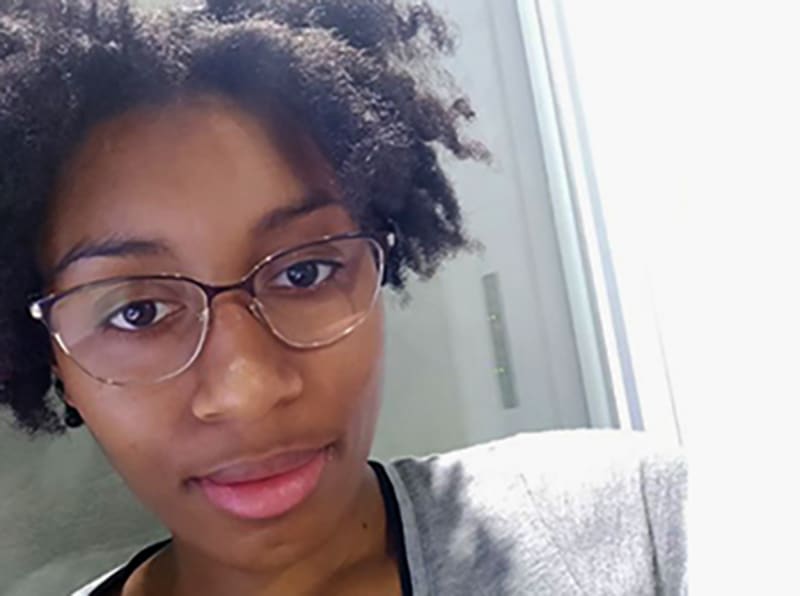
Biography
Taylor Adams-Hariott is a 3rd year student on BA (Hons) Games Design at London College of Communication.
Interview
What inspired you to study BA (Hons) Games Design?
I’ve always been interested in computer games and knew that I wanted to study something artistic, for example architecture, graphic design, interaction design or something related to psychology. Game design allowed me to combine all of these interests in to something I could share with other people.
What has been the highlight of your journey so far?
I look at what currently exists and think about what kinds of experiences I’d like to have in a game, or what subject matters and systems I'd like to explore through interaction. I try to look for what’s missing in games right now.
My advice to students is to test early, and iterate often. Your final game won't look like your first iteration, but it'll probably play a lot better by having it repeatedly play-tested. When making games, I find it useful to have a set of design pillars, things I want to achieve in the game, that focus all of my design decisions. It's important to know when to pivot on a mechanic, and if it's unengaging and not achieving your design goals then you shouldn't be afraid to cut it.
In my course, we learnt a bit of everything in 1st year, enough to prototype our games and test the core interactions. In 2nd year we did two collaborations, one within our own course and another with two other courses at London College of Communication. Now that I’m in my 3rd year, the focus is on my thesis and final major project.
The highlight of my year so far has been gaining the confidence in my ability to find solutions to my design problems and being able to look at a game and in my mind work out how I would go about making it.
What have been some of the challenges you’ve faced?
Over the course of my undergraduate study, what I found most challenging (and rewarding) was learning to collaborate with people when creating games. There can be lots of personalities and it’s important to ensure everyone on the team has the same vision. It can be difficult to organise yourself within a group and keep the team on track, but learning how to put your ego aside and take constructive criticism is important skill to have if you want to make a good game.
What do you hope to achieve with your work?
I find myself increasingly becoming interested in subjects not traditionally tackled in commercial games, like race, mental health and violence against women. It's difficult, because I want to create playful experiences with my work but I don’t want to allow perceived notions of ‘fun’ to be shoehorned in and undermine the subject matter. Games are great at communicating complex systems and they don't have to be fun to be engaging.
What are you working on at the moment?
For my final year project, I'm working with a narrative designer to create a game about sexism in the 1960s. It’s about a disgruntled office worker who seeks revenge by stealing the company's coveted office supplies. During the day they balance their workload with scouting new targets, picking locks and thwarting unwanted advances from co-workers. At night they steal, vandalize, and plant evidence.
I’m also trying to find different people to collaborate with. I want to work with other artists and see how their chosen medium effects their development and thought process. A graphic designer I am considering working with has the idea for a game that focuses on rape culture and victim blaming. It's a heavy subject to make into a game, but it's important to deconstruct oppressive cultural systems if we want to understand what allows them to exist in the first place.
What are your plans for the future?
I want to do an MA in either games design or another artistic discipline. I’m currently interested in how and where people choose to play games, and how these choices influences the type of games that are created. I'm interested in learning about how exhibition and gallery spaces work, and how games can be incorporated into these spaces - as opposed to being restricted as commercial products. I’m still figuring out how best to fill the gaps in my knowledge and what I need to study to get to where I want to be.
Related area
View the BA (Hons) Games Design course page.
Links
Check out Taylor's blog.